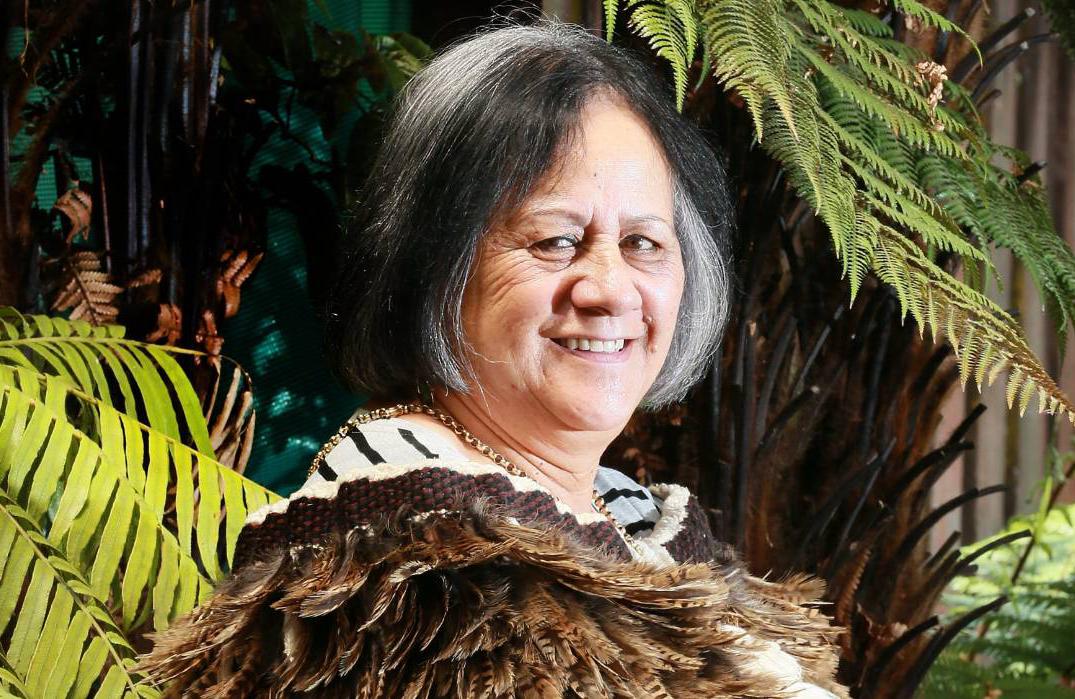The art of korowai: Waikato weaver has taught hundreds, made 29 cloaks


Maata McManus explains weaving like this: “open your legs, bring the old fella down, throw your legs up”.
And if you mess up your korowai (cloak) because you didn’t follow instructions, expect to cut it up and start again.
The Waikato woman has spent more than 20 years showing people how to create the traditional Māori garments: for mārena (weddings), tangi (funerals), birthdays, graduations.
She’s made them for families who have lost a baby, or given lessons to encourage health checks, or to help cope with grief.
And she recently received a Commonwealth Points of Light award – the Queen’s weekly award for volunteers across 53 Commonwealth nations.
McManus didn’t want to teach, but she kept being asked.
She made and lent out some miniatures when she worked with whānau who had lost babies, in a Māori Sids (sudden infant death syndrome) team.
“Whānau using the korowai gave them a bit of mana.”
Later, when promoting breast and cervical screening, places in her workshops were used to encourage Māori women to get checked out.

It grew from there, and classes at her Hamilton home, to a couple of dozen people at Tūrangawaewae Marae.
McManus is from there, and has been running classes there for about five years, all through word of mouth.
“A lot of the people who come to my classes, they have lost loved ones and they have found, doing the korowai, it’s helped them through their grieving.”
One woman, whose son died at age 28, has made three korowai, McManus said.
Pupils can show off their work every second year, when McManus holds a korowai ball.

McManus’ recent Points of Light award was presented by UK High Commissioner in New Zealand Laura Clarke.
McManus both passes on cultural heritage and “provides comfort in times of darkness, pain and grief”, a statement from Clarke said.
The fascination for korowai started young.
McManus remembers sneaking a seat at her grandmother’s weaving equipment, always covered up when the kids were over, and seeing beautiful cloaks on tūpāpaku (bodies) at tangi.
Later, she dreamed up a way to sew korowai, impressing her aunty Rangihinemutu Rawiri – until a feather fell out.
Rawiri agreed to show her the proper way, but McManus didn’t stand and watch for long.
“Oh, aunty, you can get off, I think I know how to do it now,” she said.
“And away I went. I didn’t want to go to bed, I just kept weaving.”
For her students, she advises the more measured approach of one row a night.

McManus uses mop string instead of the traditional muka (flax fibre), and reminds pupils of the weaving motion with her “open your legs, close your legs” refrain.
Once, a woman who hadn’t come to the wānanga (workshops) for a month brought her korowai back with a lump in the corner.
McManus told her to cut it up and start again.
“She was that angry she did 10 rows. It took her exactly three months to finish. It was beautiful.”
Feather prep soaks up many hours of korowai creation, McManus said, as they must be soaped and made into bundles of three.
They could be from anything from roosters to pheasants to pūkeko – if you’re quick enough to pick up the roadkill.
McManus has even used feathers from weka hunted in the Chatham Islands, where the bird is not protected.
In total, she’s made 29 korowai.

McManus has made 29 korowai so far, and has a ball every two years for her students to show off their work.
Her family has been pulled into it too, helping with tasks such as cooking during the two-day weaving workshops.
“My husband is my backstop. I’m lucky that he puts up with me,” she said. “If you had come a couple of weeks ago, I had feathers everywhere.”
McManus works for Waikato District Health board as a kaitiaki (guardian) in Te Puna Oranga, the Māori health service.
And this isn’t her first award – she received a Queen’s Service Medal in 2017, for services to Māori and health.
Story by Libby Wilson – Stuff